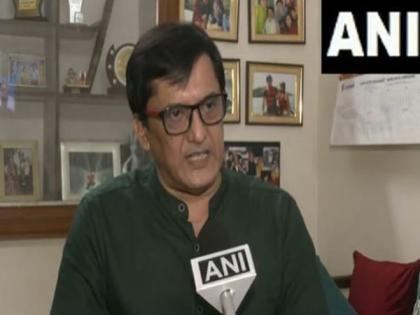"Nepal has been reeling under corruption for a long time," says grandson of former PM K I Singh
By ANI | Updated: September 10, 2025 18:50 IST2025-09-10T18:47:23+5:302025-09-10T18:50:04+5:30
Lucknow (Uttar Pradesh) [India], September 10 : On the ongoing political situation in neighbouring Nepal, Yashwant Shah, grandson of ...

"Nepal has been reeling under corruption for a long time," says grandson of former PM K I Singh
Lucknow (Uttar Pradesh) [India], September 10 : On the ongoing political situation in neighbouring Nepal, Yashwant Shah, grandson of former Nepal Prime Minister Kunwar Indrajit Singh, shed light on the recent developments in the country.
Shah highlighted the underlying issues in Nepal, stating, "The country has been reeling under corruption for a long time. Despite good tourism and businesses, there is immense poverty and unemployment."
Speaking about the protest, he said, "A peaceful protest was organised in the capital city on 8 September. No political parties were involved in it. It was called by a student body called 'Students For Justice'. Around 12,000 people gathered for this protest."
He further added, "To deter the protest and protestors, force was used by the police. Police started shooting the protestors."
The protest reflects growing public frustration over economic and governance issues, underscoring the challenges faced by Nepal despite its thriving tourism and business sectors. In response, Nepali President Ram Chandra Paudel is expected to meet the protesting citizens on Wednesday to pursue a peaceful resolution to the ongoing Gen Z movement through dialogue.
He will be meeting with a delegation of the protestors, along with the Nepalese Army.
The call for the talks by President Paudel came on late Tuesday after he accepted the resignation of Prime Minister KP Sharma Oli.
According to The Himalayan Times, citing an official statement from the President, he called for resolving the crisis without further bloodshed or destruction through dialogue.
"I urge all sides to remain calm, prevent further harm to the nation, and come to the table for talks. In a democracy, the demands raised by citizens can be addressed through dialogue and negotiation," the statement read, as quoted by The Himalayan Times.
The appeal comes on day two of the violent demonstrations that left at least 19 people dead and hundreds injured when security forces opened fire on protesters outside the Federal Parliament.
Earlier, four ministers had resigned from the government following Nepal's 'Gen Z' protest, a widespread movement led by young people, primarily students, to demand accountability and transparency from the government.
The protests began on September 8 in Kathmandu and other major cities, including Pokhara, Butwal, and Birgunj, after the government imposed a ban on major social media platforms, citing tax revenue and cybersecurity concerns.
Building on this anger, protesters are demanding an end to institutionalised corruption and favouritism in governance. They want the government to be more accountable and transparent in its decision-making processes. The protesters are also demanding the revocation of the ban on social media platforms, which they see as an attempt to suppress free speech.
As tensions mounted, the situation quickly escalated on the ground. At least 19 people were killed and 500 were injured in clashes with security forces. A curfew was imposed in several cities, including Kathmandu, to control the situation.
At the heart of the unrest was the government's decision to impose a ban on 26 major social media platforms, including Facebook, Instagram, WhatsApp, and YouTube, citing concerns over misinformation and the need for regulatory compliance. Citizens saw this as an attack on free speech and a way to suppress dissent.
Public frustration deepened further when the "Nepo Babies" trend on social media exposed the lavish lifestyles of politicians' children, highlighting the economic disparity between them and ordinary citizens. This fuelled public frustration over corruption, nepotism, and economic inequality.
Amid these grievances, Nepal's ongoing jobs crisis, with nearly 5,000 young people leaving the country every day to seek work abroad, has added to the unrest.
Disclaimer: This post has been auto-published from an agency feed without any modifications to the text and has not been reviewed by an editor
Open in app